第1章 Chapter 1(1)
Objects and Origins of the Science Political economy is the name given to an important division of the science of government. The object of government is, or ought to be, the happiness of men, united in society; it seeks the means of securing to them the highest degree of felicity compatible with their nature, and at the same time of allowing the greatest possible number of individuals to partake in that felicity. But man is a complex bring; he experiences moral and physical wants; therefore his happiness consists in his moral and physical condition. The moral happiness of man, so far as it depends on his government, is intimately connected with the improvement of that government; it forms the object of civil policy, which ought to diffuse the happy influence of liberty, knowledge, virtue, and hope, over all classes of the community.
Civil policy should point out the means of giving to nations a constitution, the liberty of which may elevate the souls of the citizens; an education which may form their hearts to virtue and open their minds to knowledge; a religion which may present to them the hopes of another life, to compensate for the sufferings of this. It should seek not what suits one man or one class of men, but what may impart most happiness by imparting most worth to all the men living under its laws.
The physical well-being of man, so far as it can be produced by his government, is the object of Political Economy. All the physical wants of man, for which he depends on his equals, are satisfied by means of wealth. It is this which commands labour, which purchases respectful service, which procures all that man has accumulated for use or pleasure. By means of it health is preserved, and life maintained; the wants of infancy and old age are supplied; food, and clothing, and shelter, are placed within the reach of all. Wealth may therefore be considered as representing all that men can do for the physical well-being of each other; and the science which shows to governments the true system of administering national wealth is an important branch of the science of national happiness.
Government is instituted for the advantage of all the Persons subject to it; hence it ought to keep the advantage of them all perpetually in view. And as in respect of civil policy it should extend to every citizen the benefits of liberty, virtue, and knowledge, so it ought likewise, in respect of political economy, to watch over all the advantages of the national fortune.
Abstractly considered, the end of government is not to accumulate wealth in the state, but to make every citizen participate in those enjoyments of physical life which wealth represents.
Government is called to second the work of providence, to augment the mass of felicity on earth and not to multiply the beings who live under its laws, faster than it can multiply their chances of happiness.
Wealth and population are not, indeed, absolute signs of prosperity in a state; they are only so in relation to each other. Wealth is a blessing when it spreads comfort over all classes; population is an advantage when every man is sure of gaining an honest subsistence by his labour. But a country may be wretched, though some individuals in it are amassing colossal fortunes; and if its population, like that of China, is always superior to its means of subsistence; if it is contented with living on the refuse of animals; if it is incessantly threatened with famine, this numerous population, far from being an object of envy, is a calamity.
The improvement of social order is generally advantageous to the poor as well as to the rich; and political economy points out the means of preserving this order by correction, but not of overturning it. It was a beneficent decree of Providence, which gave wants and sufferings to human nature; because out of these it has formed the incitements, which are to awaken our activity, and push us forward to develop our whole being. If we could succeed in excluding pain from the world, we must also exclude virtue; if we could banish want, we must also banish industry.
Hence it is not the equality of ranks, but happiness in all ranks, which the legislator ought to have in view. It is not from the division of property that he will procure this happiness, but from labour and the reward of labour. It is by maintaining the activity and hopes of the mind; by securing to the poor man as well as to the rich, a regular subsistence and the sweets of life, in the performance of his task.
The title given by Adam Smith to his immortal work, on the science we are now engaged with, 'The Nature and Causes of the Wealth of Nations' forms at the same the most precise definition of that science. It presents a much more exact idea than the term political economy, afterwards adopted. The latter designation, at least, requires to be understood according to the modern acceptation of the word economy, not according to its etymology.
In its present sense economy denotes the preservative, administrative, and the management of property; and it is because we use the somewhat tautological phrase domestic economy for the management of a private fortune, that we have come to use the phrase political economy for the management of the national fortune.
From the time when men first entered into social union, they must have occupied themselves with the common interests originating in their wealth. From the beginning of societies, a portion of the public wealth was set apart to provide for the public wants. The levying and management of this national revenue, which no longer pertained to each, became an essential part in the science of statesmen. It is what we call finance.